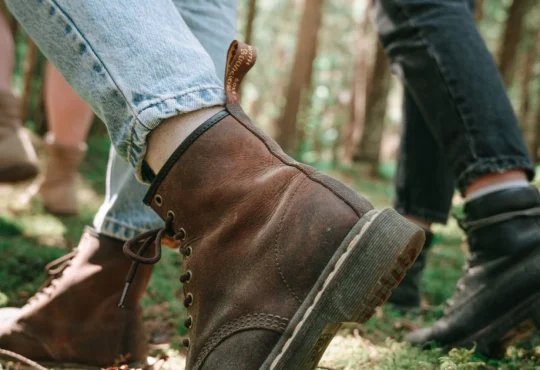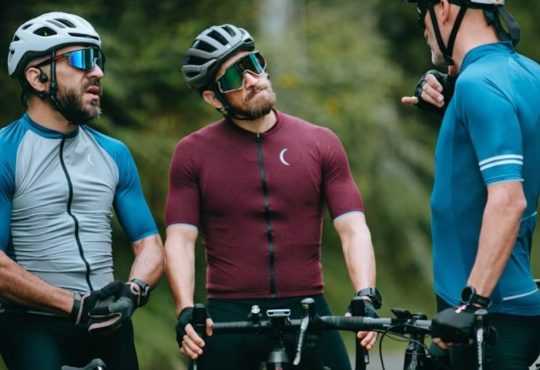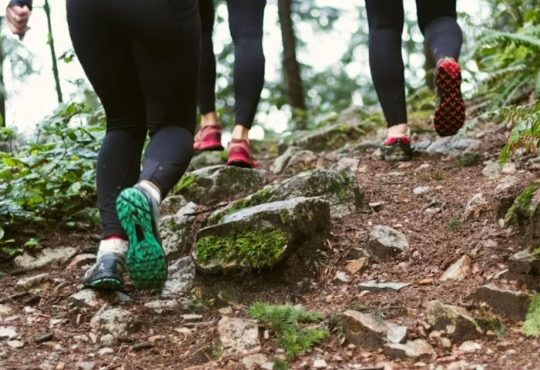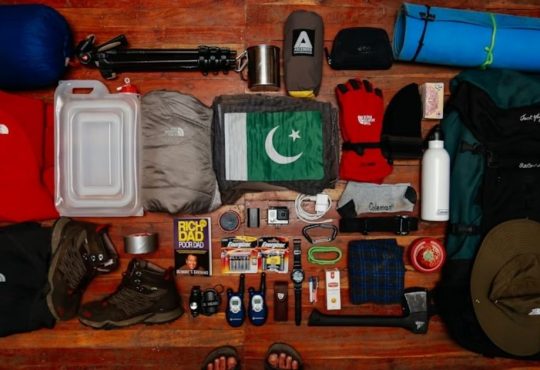So, you’re thinking about going camping for the first time? That’s exciting! Getting out into nature can be an amazing experience—fresh air, starry skies, and the peace of being away from the chaos of everyday life. But let’s be real: camping as a beginner can also feel a little overwhelming. What do you pack? How do you set up a tent? What if you forget something important—or worse, make a rookie mistake that ruins the trip?
Don’t worry. This guide is here to help you prepare, step by step. We’ll break down everything you need to know about camping as a beginner—from the gear you really need to the mistakes most first-time campers make (and how to avoid them). Whether you’re planning a weekend trip with friends or testing the waters with a solo adventure, you’ll find practical, simple advice to help you camp confidently and safely. Let’s get started!
Why Camping Is Worth Trying—Even for Beginners
Camping isn’t just for hardcore nature lovers. It’s for anyone who wants a break from screens, city noise, and packed schedules. You don’t need to be super outdoorsy to enjoy camping—you just need to be prepared. Here’s why camping as a beginner is worth the effort:

-
It’s affordable: Once you invest in some basic gear, most campsites cost far less than hotels.
-
It’s good for your health: Fresh air, exercise, and time in nature reduce stress and boost mental health.
-
It brings people together: Whether it’s family bonding or a fun weekend with friends, camping is a great way to connect.
-
It’s flexible: You can go car camping, try a campsite with amenities, or eventually work your way up to backcountry camping.
Step-by-Step: How to Go Camping as a Beginner
Let’s go through the process in a beginner-friendly way so you feel ready and excited for your first camping trip.
1. Choose the Right Type of Camping
Not all camping is the same, and picking the right style can make or break your first trip. Think about your comfort level, how much gear you’re willing to manage, and how far off the grid you want to go.
Car Camping – You drive to your campsite, park nearby, and set up your tent close to your vehicle. This is ideal for beginners because it’s low-stress—you can bring more supplies, sleep comfortably, and easily pack up if the weather turns bad.
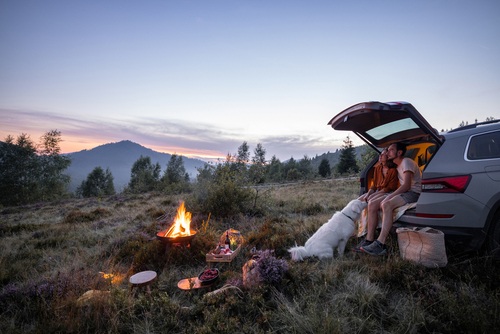
Tent Camping at a Campground – You’ll carry your gear a short distance to a designated site. Most campgrounds offer amenities like restrooms, picnic tables, and water access. It’s a step up from car camping in terms of independence but still very beginner-friendly.
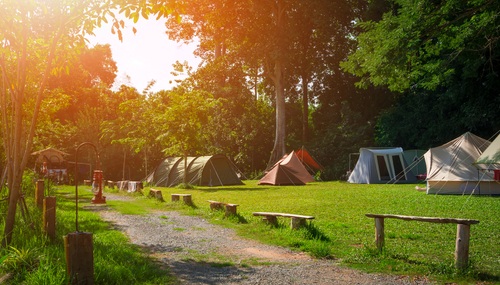
Backpacking – This is more for experienced campers. You’ll hike to a remote site while carrying everything in a backpack, including food, water, and shelter. It offers amazing solitude and adventure but requires planning, physical fitness, and survival skills.
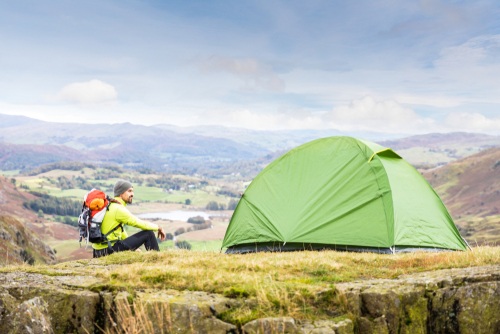
Glamping – A more luxurious take on camping. It usually involves sleeping in a pre-set structure like a cabin, yurt, or bell tent with real beds, electricity, and sometimes even Wi-Fi. It’s perfect if you’re unsure about roughing it or want to ease into nature.

👉 For camping as a beginner, car camping or a well-equipped campground is usually the best way to start. It gives you the outdoor experience without pushing you too far out of your comfort zone.
2. Pick a Beginner-Friendly Campsite
Choosing the right campsite is key to enjoying your first camping trip. As a beginner, you’ll want a place that’s easy to access and has helpful facilities. Look for a location with basic amenities like:
-
Flush toilets or clean pit toilets – These make your stay more comfortable and reduce stress around bathroom needs.
-
Running water – Essential for drinking, cooking, and washing up.
-
Picnic tables – Great for meal prep, dining, or playing games.
-
Fire pits or grills – Makes cooking easier and allow you to enjoy a campfire safely.
-
Clearly marked campsites – Helps you easily find your spot and stay within boundaries.
Also, check if the site allows car access, especially if you’re bringing a lot of gear. Some campgrounds even offer extras like small stores, ranger programs, or rental equipment.
Use websites like Recreation.gov (U.S.) or Pitchup.com (U.K.) to explore, read reviews, view site photos, and book ahead. Booking early is a smart move, especially during holidays or summer weekends.
3. Gear Up: What You Actually Need
It’s easy to feel overwhelmed by all the gear options out there, but you don’t need to buy everything at once. Focus on the basics that will keep you warm, dry, fed, and comfortable. Quality over quantity is key—especially for camping as a beginner.
Must-Have Gear for Beginners
-
Tent: Choose one that’s simple to set up, waterproof, and roomy enough for everyone plus some gear. Look for one with a rainfly and good ventilation.
-
Sleeping bag: Get one suited to the lowest nighttime temperature you expect. If you’re unsure, a three-season sleeping bag is a safe bet.
-
Sleeping pad or air mattress: This adds a layer of comfort and insulation from the cold ground—trust us, it makes a big difference.
-
Camp stove or grill: A small propane stove is easy to use and reliable for boiling water or cooking simple meals.
-
Lantern or flashlight: Headlamps are great for hands-free use, and a lantern can light up your whole tent or picnic table area.
-
Cooler: Keeps your food fresh and drinks cold, especially on warm days.
-
Chairs: Folding camp chairs are perfect for relaxing by the fire or at the campsite.
Don’t Forget These Essentials
-
First aid kit – Include band-aids, antiseptic, tweezers, and any personal medications.
-
Bug spray – Keeps mosquitoes and other pests at bay, especially in the evening.
-
Sunscreen – Even if it’s cloudy, UV rays can cause burns.
-
Trash bags – Always pack out your trash to keep the campsite clean.
-
Reusable water bottles or large jug – Staying hydrated is a must. A refillable jug makes cooking and cleanup easier too.
-
Matches or a lighter – Bring more than one fire-starting option. Waterproof matches are a great backup.
-
Cooking utensils and a small pot or pan – A spatula, knife, and one or two pots or pans will cover most simple meals.
-
Plates, cups, and cutlery – Go for lightweight, reusable options to minimize waste.
💡 Pro tip: Set up your tent at home or in your backyard at least once before your trip. Practice using your stove, packing your gear, and sleeping on your pad so you’re not figuring it all out at the campsite. It helps build confidence and avoids frustration later.
4. Pack Smart and Stay Organized
Being organized can make your entire camping trip smoother, especially when you’re learning the ropes. The more prepared you are, the less you’ll stress about finding things or forgetting essentials.
-
Use plastic bins, storage totes, or duffel bags to group similar items together—one for kitchen supplies, one for clothing, one for food, etc. Labeling them helps you find things quickly without unpacking everything.
-
Create a detailed checklist a few days before your trip. Include everything from gear and food to toiletries and chargers. You can use online templates like REI’s camping checklist or make your own based on your needs.
-
Pack clothing in layers, not outfits. Weather can change quickly outdoors. Think base layers (like moisture-wicking shirts), mid-layers (hoodies or fleeces), and outer layers (rain jackets or windbreakers). Don’t forget a warm hat and extra socks—even in summer!
Also, keep frequently used items like flashlights, snacks, or hand sanitizer in easy-to-reach pockets or bags so you’re not digging through everything at night or in a hurry. A little planning goes a long way when camping as a beginner.
5. Plan Simple Meals Ahead of Time
You don’t have to be a professional chef to eat well while camping. In fact, keeping meals simple and low-effort is the best way to enjoy your trip without spending all your time cooking or cleaning. For camping as a beginner, aim for meals that require minimal ingredients, no fancy tools, and quick cleanup.
Easy Food Ideas:
-
Hot dogs and buns – Classic, easy to cook over a grill or campfire.
-
Canned chili or soup – Just heat it up on your camp stove and serve.
-
Instant oatmeal – A quick and warm breakfast; just add hot water.
-
Pre-made sandwiches or wraps – Great for lunches and don’t require cooking.
-
Trail mix, granola bars, and fruit – Perfect snacks with no prep needed.
-
Marshmallows, chocolate, and graham crackers – You can’t skip s’mores!
💡 Tip: Do as much prep as you can at home—chop veggies, marinate meat, or portion snacks into containers. This saves time and reduces waste at your campsite.
Don’t forget to pack a cooler with ice to keep perishables safe, and bring a trash bag and a separate bag for recyclables so you can leave your site clean and organized.
6. Know Basic Camping Safety
When you’re camping as a beginner, safety should always come first. Being prepared for common situations helps you stay calm, avoid accidents, and enjoy your trip with peace of mind.
-
Check the weather forecast a few days before and again the day you leave. Pack for sudden changes—rain gear, warm clothing, and extra blankets can make all the difference if temperatures drop at night.
-
Store food properly by sealing it in containers or coolers and keeping it inside your car or a bear-proof locker if available. Never leave food, snacks, or trash out, even just for a few minutes—it can attract animals and create a safety risk.
-
Know the local campground rules before you arrive. Some areas may have fire bans, quiet hours, or rules about pets and waste disposal. Following these helps keep you safe and respectful of others and nature.
-
Practice fire safety by keeping your fire small, never leaving it unattended, and always having water or sand nearby to fully extinguish it. Many wildfires start from unattended campfires—don’t take the risk.
-
Bring a paper map or downloaded offline maps of the area. Phone batteries can die, and cell service is often unreliable in remote areas. Knowing how to navigate without a signal is a smart backup.
Even with the most basic trip, a little safety prep goes a long way in helping your first camping experience go smoothly.
Beginner-Friendly Camping Emergency Kit Checklist
First Aid Essentials:
- Adhesive bandages (various sizes)
- Antiseptic wipes or spray
- Antibiotic ointment (like Neosporin)
- Tweezers (for splinters or ticks)
- Medical tape and gauze
- Pain relievers (ibuprofen, acetaminophen)
- Allergy medication (antihistamines like Benadryl)
- Insect sting relief (cream or wipes)
- Personal medications (enough for the whole trip)
Emergency Tools:
- Pocket knife or multi-tool
- Whistle (for signaling if you get lost)
- Waterproof matches or a lighter
- Emergency blanket (compact and keeps you warm)
- Flashlight or headlamp (with extra batteries)
- Duct tape (for temporary fixes on gear or clothes)
- Extra phone power bank (fully charged)
Other Helpful Items:
- Sunscreen and lip balm with SPF
- Bug spray or insect repellent wipes
- Waterproof poncho or rain jacket
- Printed map of the area or offline GPS app
- Extra cash (some campgrounds don’t take cards)
💡 Pro tip: Store your emergency items in a small waterproof pouch or zip bag so everything stays dry and easy to access.
Common Mistakes to Avoid When Camping as a Beginner
Making a few mistakes on your first camping trip is normal—but knowing what to watch out for can save you from discomfort, stress, or even safety issues. Here are some of the most common beginner slip-ups and how to avoid them:
-
Overpacking or underpacking: Bringing too much can clutter your space and make setup harder. Bringing too little can leave you cold, hungry, or unprepared. Stick to a checklist and pack only what you truly need.
-
Not testing gear beforehand: Don’t wait until you’re at the campsite to figure out how to set up your tent or use your camp stove. Test everything at home, especially if it’s brand new.
-
Ignoring the weather forecast: A sudden downpour or chilly night can ruin your trip if you’re not prepared. Always check the forecast and bring extra layers and rain gear, just in case.
-
Arriving too late: Getting to the campsite near sunset makes it harder to set up, find your spot, and settle in. Try to arrive at least 2–3 hours before dark so you can get organized in daylight.
-
Leaving food out: This attracts insects and wildlife, which can be dangerous or at the very least, a big hassle. Store food in sealed containers or your vehicle when not in use.
-
Skipping campsite rules: Every campground has specific rules—for example, fire restrictions or quiet hours. Not knowing them can lead to fines or awkward encounters with park rangers or other campers.
-
Not bringing enough light: Relying only on your phone flashlight is a common mistake. Always bring a headlamp or lantern for navigating in the dark.
-
Being Too Rigid With Plans: Nature isn’t always predictable. It might rain, you might forget something, or plans may change. Keep a flexible mindset and enjoy the experience.
Learning from these beginner mistakes—and planning around them—will help you have a much more enjoyable and stress-free camping experience.
Tips to Make Camping as a Beginner More Enjoyable
Want to make your first camping trip not just smooth, but genuinely fun? A little extra planning and the right mindset can turn a basic trip into a great memory. Here are some easy ways to boost your experience:
-
Bring games, cards, or a book for relaxing during downtime. After meals or hikes, having something fun to do helps keep the mood light and enjoyable.
-
Download offline maps, music, or podcasts before you leave. Many campsites have little to no phone signal, so it’s best not to depend on streaming or GPS apps that need internet.
-
Start with a short trip—1 or 2 nights. This gives you a taste of camping without committing to a long stay. You’ll get a feel for what you like (and don’t) without burning out.
-
Camp with someone experienced if possible. Having a friend or family member who knows the ropes can make everything easier—from setting up your tent to cooking over a fire.
-
Leave no trace. This means cleaning up all your trash, avoiding damage to nature, and respecting wildlife. It helps protect the outdoors for future campers and keeps the area clean and safe.
💡 Bonus Tip: Pack a few comfort items like a cozy blanket, extra snacks, or even a travel pillow. These small things can make your first camping trip feel much more enjoyable and relaxed.
Recommended Beginner Camping Destinations
Here are a few great beginner-friendly camping spots in both the U.S. and the U.K.:
United States
-
Yosemite National Park (CA): Designated campgrounds with facilities and scenic views.
-
Acadia National Park (ME): Accessible trails and ocean views.
-
Shenandoah National Park (VA): Family-friendly, well-maintained sites.
United Kingdom
-
Lake District (England): Plenty of beginner-friendly sites with facilities.
-
New Forest (England): Wild ponies, easy trails, and good infrastructure.
-
Loch Lomond & The Trossachs (Scotland): Beautiful but manageable for first-timers.
Conclusion
Camping as a beginner doesn’t need to be stressful or intimidating. With the right preparation, a bit of flexibility, and a sense of adventure, your first camping trip can be one of the most fun and memorable experiences you’ll ever have. Start small, stick to the basics, and enjoy the peaceful simplicity that comes from spending a few days unplugged and surrounded by nature.
You’re bound to learn a few things along the way—and that’s part of the fun. Every camper, no matter how experienced, started where you are now. So pack up, double-check your gear, and go make some memories. The outdoors is waiting for you!
For more information, you can visit:


